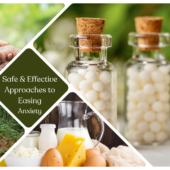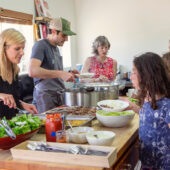Access to all articles, new health classes, discounts in our store, and more!
Living Organically – Reflections on Food and Nature: An Interview with Maria Rodale
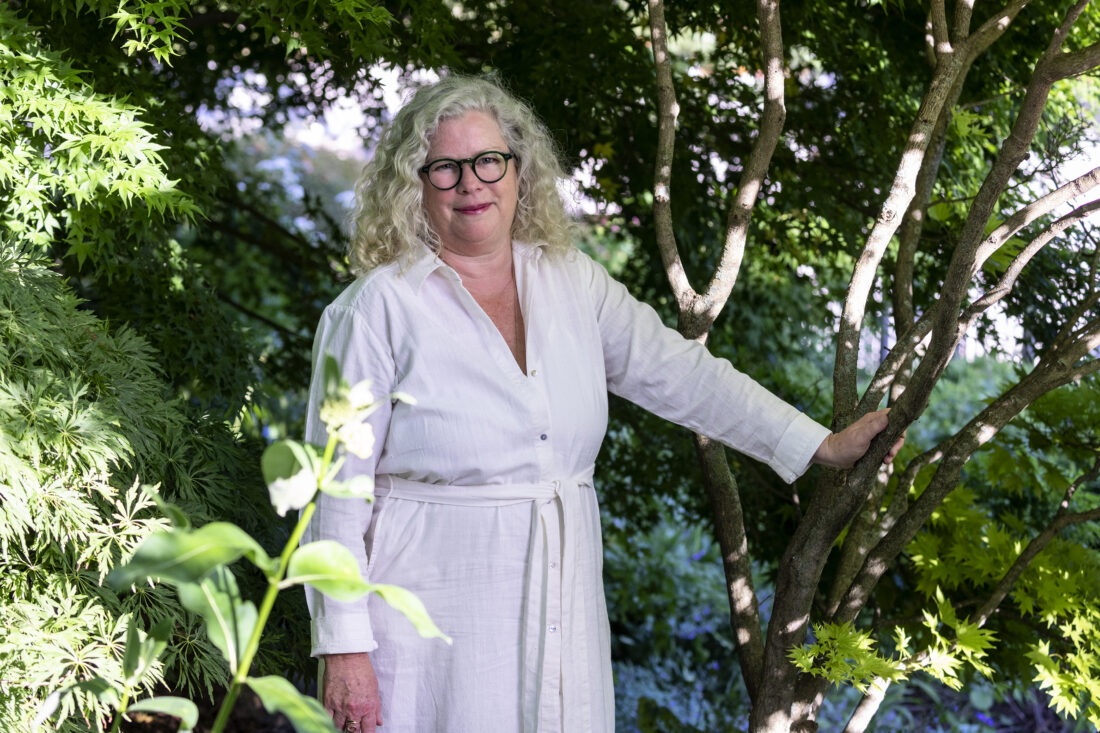
Our executive director, Steven Schindler, had the great pleasure of interviewing Maria Rodale in February. Raised on the nation’s first official organic farm, founded by her grandfather, J.I. Rodale – known as the father of the organic movement – Maria has achieved renown as an author, publisher, and former CEO of Rodale Inc. She is a strong proponent of the organic movement and lifestyle and is deeply connected with the environment. This interview explores her background, philosophy, family life, and approach to food.
● ● ●
Steven Schindler: How did growing up on the first organic farm in the country shape your relationship with food?
Maria Rodale: The word that comes to mind is conflicted. On the one hand, there was this beautiful farm, all organic, where I was picking and eating vegetables and the chickens were laying eggs. One of my earliest memories is going into my grandmother’s house and seeing the chicken legs sticking out of the pot. When my grandfather was alive, we also had our own cows, pigs, and sheep. So I enjoyed the savory deliciousness of eating food grown right on the farm. That was amazing.
Then there was my father, who felt the pressure of modeling what the health food industry was saying back in the 1960s, which was no fat, no sugar, no salt, whole grains. My mother, who is Pennsylvania Dutch and stubborn, was expected to get dinner on the table at 5:30 every night for five kids, my father, and anyone he decided to bring home to dinner. There was a lot of arguing and crying.
At the same time, my friends would say, “I don’t want to go to your house. You’re just going to have carrot sticks and tofu.” I would think: Are you kidding? My mother would never let tofu in the house. So it was very conflicted, I have to say.
I think the most important thing I learned from my family was how delicious food can be when it’s grown and eaten fresh. It was wonderful eating raw peas fresh from the garden or having a roast chicken, chicken soup, or steak from the animals we raised.
Steven Schindler: What was it like for you to experience how other people were eating compared with how your family ate?
Maria Rodale: I found that some of the things I ate at other people’s houses were really delicious, in a different way from the food we ate at home. And I still remember the nights that we were allowed to get Kentucky Fried Chicken. We weren’t permitted to eat very much candy, but when we got our hands on some, we would shove it into our faces like it was the end of the world.
One thing I learned as a child from observing all the people my father brought home to dinner was that just because somebody was a real health food person didn’t make them a nice person. My radar was always focused on who the happy people were.
I had some school friends whose parents were very sick, and I could feel it in the food and in the energy when I went to their houses. Then I had other friends who were living in a really healthy environment but were still eating cakes and candies. So my little analytic mind perceived that things weren’t adding up, except for the energy—the energy of the people and the energy that came from the food. I believe that we ingest the energy of our food, its life force or aliveness, which is affected by the environment and the intention with which it was grown and prepared.
Steven Schindler: Would you share some of the strategies you have used over the years to encourage your three children to prepare and eat healthy food?
Maria Rodale: My children are all very good eaters and love to cook and bake. They’re not really gardeners in the way that I am, but they enjoy going out and picking fresh foods to eat.
When they were growing up, I would have the whole family sit down to eat dinner together each night, even when I was CEO of the company – but I didn’t force my kids to eat things, as I had been forced to. I’ll never forget the time that I got sent to my room without dinner because my mother had boiled Brussels sprouts and I wouldn’t eat them. I tried to feed them to the dog, and the dog wouldn’t eat them either.
My approach to food is different. I read John Thorne’s recipe for sautéed Brussels sprouts in his book Simple Cooking, and, for the first time in my life, I thought that they sounded really good. I prepared them that way, and now everybody in my family loves Brussels sprouts. To me, it’s really about cooking things in a way that is delicious for people.
My oldest daughter had to go off gluten when she was a teenager, and now my youngest daughter has had to do the same, since eating gluten started to give her migraines. I decided that I would stop eating gluten, too, and that really improved my health, eliminating my acid reflux and frequent coughing. Since we gave up gluten, we’ve all been much healthier and happier. So I’m flexible with everybody’s diet.
Steven Schindler: Do you have favorite seasonal foods that you look forward to each year?
Maria Rodale: Eating seasonally is a huge thing in my life. I love salads, and in spring, when the lettuce is growing, meals are usually planned around a salad. In summer, we get zucchinis. Tomatoes don’t get ripe here until late summer, but peas and green beans are ready earlier. I grew chickpeas last year for the first time, and they were delicious green. Although I like to experiment, I tend to focus on growing the things that I’m good at, such as basil. Everybody loves pesto, so I make pesto and then tomato sauce. For some reason, I can’t grow carrots really well, but I do grow kale and I’m a big garlic grower.
I like to go out and eat what’s growing, and I have two big freezers for storage. Canning and fermenting scare me – the fear of botulism was a big thing when I was growing up – but I made my first pickles this year and actually found the courage to eat them. I like food to be really fresh, but I do freeze a lot of things.
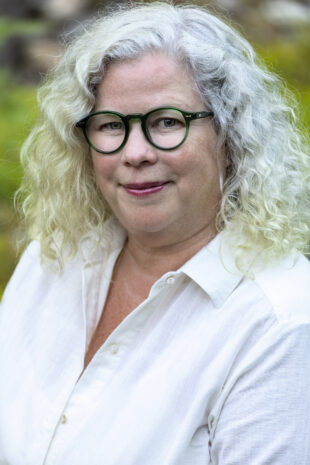
Maria Rodale: My new book, Love, Nature, Magic, relates my experiences of learning from nature through shamanic journeying. The book is focused less on the edible plants and more on things in the garden that annoy us, such as mugwort, mosquitoes, and poison ivy. But my philosophy, especially after going through the process of writing that book, is that everything is alive, everything is conscious, and everything wants to be appreciated and respected.
Years ago, I took a class with Bill Mollison, the founder of permaculture. He told me that everything eats: vegetables eat, fruits eat, animals eat, we eat. Because eating involves death and transformation, it’s important to eat with respect, care, and gratitude. In fact, when we are being thankful and kind, everything tastes better.
Steven Schindler: What are your thoughts about all the competing diet plans, such as Paleo, keto, and primal?
Maria Rodale: I’m going to speak freely now because I no longer own a publishing company that made millions of dollars from diet books and sold magazines that promised weight loss. I think one reason why there are so many diets and diet books is because we still have cultural judgment and expectation about being slim – which is not just about being healthy, it’s about being attractive to others.
I also think that a lot of the dietary groups, from vegetarian to Paleo, have come to resemble religions. As with religions, there are friendly groups and there are very strict – or even aggressive – ones. The way people relate to food actually tends to be more like the way they relate to religion than to health.
Now, I believe that food has incredible power to heal, but what each person needs is different. Some people, like me, need meat. If I don’t eat meat, I don’t feel good. As I mentioned, my daughters can’t eat gluten, and there are a lot of people who can’t eat dairy. The fact that we have a lot of dietary choices is great, but I’m very judgmental about judgment.
I think we have to be loving and supportive of all body types and shapes. I used to say, in private, that skinny people get cancer, too. Just because you’re thin doesn’t mean that you can’t get sick. In fact, the studies show that having a little extra weight on you when you get older is healthier and can help you live longer.
There’s one more thing I will say. This whole obsession – and I think it’s a bit of a male obsession, I’m sorry – with looking back towards the caveman and the Paleo era is nonsense. We don’t know what Paleolithic humans ate or what they did. Let’s look forward instead and ask, What do we need to do to make sure that people have the freedom to eat what they want, as long as it’s healthy for the whole environment and they’re not killing other people by their food choices?
Steven Schindler: Given that a little extra weight is not necessarily a health problem, would you talk more about the causes of the obesity epidemic?
Maria Rodale: Studies have been done showing that the nutritional content of fruits and vegetables has drastically declined in the last 50 to 60 years. It’s basically been cut in half. So one thing that I think has led to the obesity epidemic is that we need to eat more in order for our bodies to feel they have obtained the nutrients they need. A second thing, which I wrote about in my book Organic Manifesto, is that a lot of the chemicals being used – both on the fields and in our houses – are endocrine disruptors.
Scientists such as Theo Coburn have written really great books about this. You read a lot about diabetes – well, diabetes is an endocrine disease, and all these plastics, fragrances, and cleaning products are endocrine disruptors. So maybe obesity is not the fault of the individual. Maybe it’s caused by the environment. Maybe it’s all of our fault.
We shouldn’t judge people for their body weight. Instead, we should address the root cause of the obesity epidemic. I think it’s a combination of the decreased nutrition in our food, resulting from our produce being grown in dead soil, and the toxins in our environment.
Steven Schindler: What can we do in our daily lives to be more supportive of a healthy planet?
Maria Rodale: Something that I came to understand in the process of writing Love, Nature, Magic was that the importance of organic is less about our individual health than it is about the health of the whole planet. If a field is sprayed with toxic chemicals, that’s not just hurting the people spraying it or those eating the food grown there. It’s also killing the life in the soil that stores carbon. Those chemicals are going into the streams and making the fish toxic, then flowing into the ocean and creating dead zones.
To me, the most important thing we can do is support the use of organic methods everywhere, not just on the farms but also in our lawns and houses. We need to make sure that we are not adding to the toxicity of the world by doing things like spraying Raid on insects.
We also have to treat everything with kindness. That might involve transforming our sense of what is perfect. Maybe a skinny body is not what’s perfect. Maybe a world without mosquitos is not perfect. In fact, I know that in a world without mosquitoes, we would cease to exist. We need to better understand our relationship with other beings and treat nature with the respect it deserves. We shouldn’t try to kill anything unless we have to eat it, and then we should kill it kindly.
This next concept can be really hard to understand, but standing between each of us and nature are many things that make connections – the farms, the processing plants, the distribution networks, the packaging – and these are the areas we need to focus on cleaning up. We need to make our food systems more localized and resilient, and get rid of all the plastic. These things will have the biggest impact on the health of the planet.
Steven Schindler: Would you tell us a little about the work of the Rodale Institute and your current role in it?
Maria Rodale: I am a board member of the Rodale Institute, and I am very committed to its regenerative organic mission and work. The Institute is the leader in the science of regenerative organic agriculture, which it has been studying – in comparison to synthetic chemical and even GMO farming – for the last 40 years. We have been leading the way, and other people have now replicated our studies.
The science is really clear. We know that regenerative organic agriculture is more productive, especially during droughts and floods, which we are seeing more and more of. Regenerative organic is more profitable for the farmers. It promotes carbon storage and prevents the leaching of chemicals into the water. So it’s a no brainer; everybody should be farming organically. The question is, what are the systems in place that are preventing this? A lot of the problem is due to vested interests in chemicals, vested interests in government subsidies, vested interests in giant tractors that aren’t really necessary. But farmers love their tractors. There are a lot of cultural and emotional issues that need to be resolved.
Steven Schindler: What are some of your preferred methods of food preparation?
Maria Rodale: I think the first thing is making sure that the ingredients are fresh and as clean and organic as possible. I enjoy both raw and cooked foods, and I think that’s a personal choice. However, one of my basic tenets is that fat is important. With a lot of foods, you can’t even really absorb the nutrients without eating fat. I like using real fats – butter, olive oil (even though it’s not local), lard, chicken fat. They add a lot of flavor to things, and they feed the brain as well.
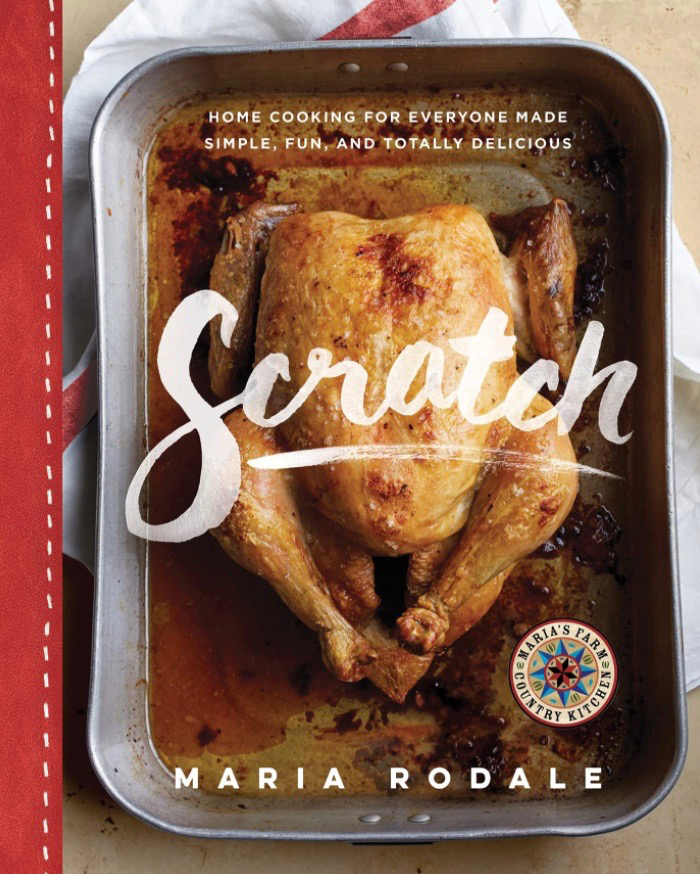
I’m at an interesting point in my life where I’ve been eating on my own a lot more frequently. This has led to the realization that I must really like to cook because I make awesome things when it’s just me – and they are exactly what I want. For instance, I’ve been eating a lot of venison because I love it, although nobody else in the family really likes it. I feel that venison nourishes in a very primal way, especially in my case, since the deer are hunted with a bow and arrow on my own land. You can’t get better food than that.
From a very young age, I’ve definitely been more focused on the energy of food than its nutritional content. I have a personal belief that if something we eat was raised in suffering, we’re ingesting that suffering. Think about chickens that were confined and raised in squalor. I don’t want that energy in my body – even though I’ll eat that food if I’m hungry.
Steven Schindler: How can we improve our relationships with the plants and animals that make up our food?
Maria Rodale: A lot of it is common sense. Know where your food comes from. Know your farmer. Know your supermarket. Read the labels. Grow your own when you can. Don’t beat yourself up or try to be perfect. My classic example is that I still eat Miracle Whip because I like it. Be gentle with yourself and with your family, especially your children. Just try to make things as delicious and stress-free as possible.
My new motto, so to speak, is “happy living on a healthy planet.” If we hold the energy of happiness and joy, and we treat the world around us with that kind of energy, we’re more likely to have a healthy environment.
Steven Schindler: In Love, Nature, Magic, why do you describe your journey as a personal longing to know, understand, and find hope?
Maria Rodale: Since I was little, I’ve been what I would call a secret spiritual seeker – curious and asking questions. I came from a mixed family; I grew up in the Lutheran Church, but my father and his family were Jewish. There wasn’t a unified worldview, and that left a lot of room for questioning and exploration, which I deeply appreciate.
I have read a lot and taken many courses, exploring issues such as: What unites us all? How can we heal the world? How can we create world peace? What I’ve learned, particularly from my shamanic journeys with nature, is that love is the universal thing. But it’s remarkable how dangerous love is in many cultures today. If you look at Iran or Afghanistan or even the evangelical faith here, the way religion is practiced is often not about love, it’s about control.
It seems to me that how we treat other people is reflected in how we treat nature. There are a couple of chapters in the book that talk about immigration and invasive plants, and how connected these concepts are. So even a liberal conservationist who has been taught that we have to get rid of invasive plant species might ask: Do we really? Maybe they’re here for a reason. Maybe they’re here because we need them in some way.
With Love, Nature, Magic, I came out of the closet as a lifelong studier of questions such as this. And because shamanic journeying is something that’s done in every culture around the world, there are no cultural appropriation issues associated with it. The process of writing this book really softened my heart, which I think is extremely healthy for me. It feels a lot better to have a softened heart than to have a hard heart.
BIOGRAPHICAL NOTES
Maria Rodale is an explorer in search of the mysteries of the universe. She is the author of Love, Nature, Magic; Organic Manifesto; and Scratch. She is also the children’s book author, Mrs. Peanuckle. Maria serves on the board of the Rodale Institute, is a former board co-chair, and is the recovering CEO and chairman of Rodale Inc. Throughout her life, she has advocated for the potential of organic regenerative farming to heal the damage wrought by pesticides and industrial agriculture. She has received awards for her lifetime of service and activism, including the National Audubon Rachel Carson Award and United Nations Population Fund’s Award for the Health and Dignity of Women Everywhere. For more information, visit mariarodale.com.
Steven Schindler is the executive director of Price-Pottenger. A nonprofit strategist and business management expert, Steven is leading a community-informed evolution of Price-Pottenger’s mission to advance the organization’s impact on public health.
Photographs of Maria Rodale by Paul Pearson.
● ● ●
Enjoy these recipes from Maria’s cookbook, Scratch: Home Cooking for Everyone Made Simple, Fun, and Totally Delicious:
Marinated Grilled Eggplant with Mint
Roasted Cauliflower with Tahini Dressing
Published in the Journal of Health and Healing™
Spring 2023 | Volume 47, Number 1
Copyright © 2023 Price-Pottenger Nutrition Foundation, Inc.®
All Rights Reserved Worldwide


